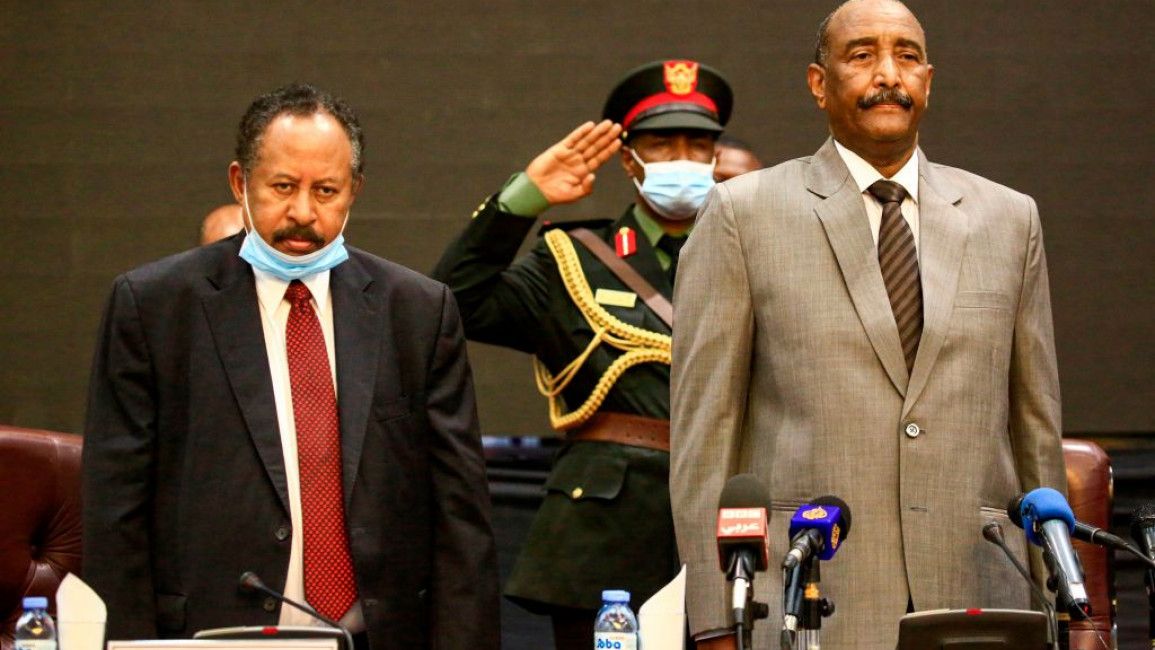SUDAN: Spy Agency - General Intelligence Service - Denies Reports It Had Banned Senior Govt Officials from Travelling Abroad Amid Tensions Between Country’s PM and Ruling General.

Sudan spy agency, the General Intelligence Service, on Wednesday denied recent media reports that it had banned government officials from travelling abroad.
“The intelligence service denies what some media forums have said regarding the banning of state officials from travel,” the Sudan News Agency (SUNA) reported the General Intelligence Service as saying in a statement.
However, the statement did not say whether any other state body had banned the government officials from travelling.
On Wednesday, the Sudan Tribune news website reported that Salah Manna, a member of the government’s committee for “dismantling” the previous regime of President Omar al-Bashir, was prevented from travelling to Cairo from Khartoum Airport, though he was later permitted to board a flight.
Sudanese media sources earlier reported that eleven government officials had been banned from travel amid tensions between Sudan’s acting head of state, General Abdel Fattah Burhan, who leads the Sovereignty Council, and Prime Minister Abdulla Hamdok.

Previous reports said that the government had sent the intelligence agency a strongly-worded letter of protest regarding the alleged ban.
Relations between Hamdok and Burhan deteriorated in the aftermath of an attempted military coup last month, which was blamed on army elements loyal to former dictator al-Bashir, who was overthrown in 2019 following mass protests.
On Monday, Burhan said during a speech that Hamdok’s government had to resign in order for Sudan to resolve its current economic crisis.
Risk Advisory
Deteriorating relations between Hamdok and Burhan in the aftermath of an attempted military coup last month, pose a threat to the fragile transition to democratic civilian rule in the two years since the removal of former President Omar al-Bashir.
Following the coup attempt by soldiers loyal to Bashir, the uncertain partneship in Sudan's transition, between the military and the civilians, is at a new low with Generals accusing politicians of alienating the armed forces and failing to govern properly. Civilian officials have accused the military of agitating for a takeover of power.
Muhammad al-Faki Suleiman, a civilian member of the joint Military and civilian Sovereign Council, which is the highest authory in Sudan, has asked people to prepare to return to street protests if necessary.
The divisions and mistrust are also happening at a crucial point in the transitional calendar: A civilian head is supposed to take over the presidency of the Transitional Sovereign Council, which has been under leadership of the military since August 2019.
As stipulated in the transitional charter, the military and civilian partners in the transitional period are supposed to alternate their leadership of the body that works as the executive until proper elections are held. With growing mistrust between the military leaders and the civilian elements of the government, the transition looks uncertain.
